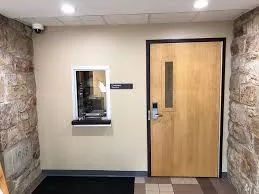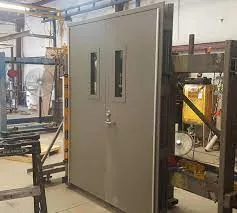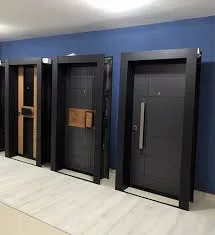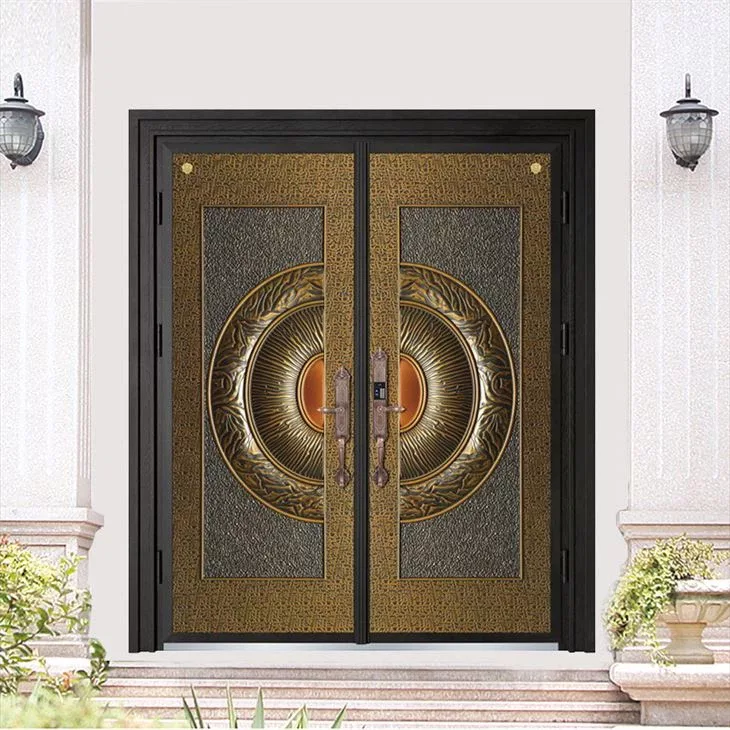The Strategic Value of Bulletproof Doors in Real Estate Development

In modern real estate development, long-term cost control and risk management have become as important as architectural design and location. Among the various security features available to developers, bulletproof doors stand out not only for their ability to protect occupants but also for their measurable financial advantages. A comprehensive analysis reveals that these doors reduce lifecycle costs, lower maintenance needs, improve insurance conditions, and enhance overall property value. For both commercial and residential projects, the decision to invest in high-security entry systems offers developers and property managers a strategic balance between safety and economic efficiency.
Lifecycle Cost Analysis of Bulletproof Doors
Initial Investment vs. Long-Term Savings
When property developers first evaluate a bulletproof door investment, the higher upfront cost often stands out as a challenge. At first glance, these security doors can be priced above standard steel or wooden models. However, the real calculation begins when you analyze the full lifecycle of the building. A standard entry system may need replacement every 7 to 10 years due to wear, vandalism, or security upgrades. In contrast, bullet-resistant doors are engineered for decades of use, offering a cost-effective security solution that reduces the frequency of replacements.

From my experience working with real estate projects, the decision to install bulletproof entry systems should not be framed as a one-time expense but rather as a strategic financial choice. Developers who initially hesitated later realized that the reduced need for repair and replacement significantly improved their bottom line. More importantly, investors often recognize properties equipped with high-security installations as lower-risk assets, leading to higher resale value and easier financing terms. In several cases, commercial banks have offered favorable loan conditions to projects that incorporated certified bullet-resistant doors, acknowledging the reduced exposure to security-related incidents.
It is worth noting that long-term cost savings also extend beyond the building owner. Tenants and occupants often accept slightly higher lease rates when they feel safer in a facility. This premium effect means the initial investment not only offsets replacement costs but also creates a tangible revenue advantage over time. In the competitive real estate market, developers who can position their projects as both safe and financially efficient stand a stronger chance of closing deals quickly.
Durability and Reduced Replacement Needs

The real strength of durable bulletproof doors lies in their resilience under stress. Unlike conventional doors, which often fail after repeated mechanical strain, long-lasting security doors maintain structural integrity even under extreme conditions. This durability translates into fewer maintenance calls, less downtime for repairs, and reduced operational disruption for tenants. Every building manager understands that scheduling frequent replacements can damage occupancy rates, as tenants dislike disturbances. By minimizing these disruptions, developers not only save on direct costs but also protect tenant satisfaction.
In practical terms, bullet-resistant doors are designed to withstand ballistic threats, forced entry attempts, and heavy daily usage in high-traffic areas. A large-scale shopping center that installed bulletproof entry systems in its main access points reported nearly zero door replacements over fifteen years. The property manager highlighted that while neighboring malls struggled with constant hardware repairs, their investment in high-durability safety doors created a long-term operational edge. This is a clear example of how upfront spending transforms into measurable financial savings.
For residential projects, the reduced replacement cycle becomes even more important. Developers selling premium apartments can guarantee long-lasting security features that extend well beyond the standard warranty period. Buyers perceive this as a strong value proposition. Many residential brokers now advertise bulletproof doors as part of their luxury listings, framing them not only as protective assets but also as lifestyle upgrades. In such cases, the higher durability directly drives higher property valuations.
From a supplier’s perspective, this emphasis on durability is not just about material quality but also about the after-sales ecosystem. Leading bulletproof door suppliers provide predictive maintenance schedules, ensuring that minor wear is detected early without full replacement. This proactive service reduces overall lifecycle costs and strengthens the developer-supplier partnership.
Maintenance Benefits for Real Estate Developers
Low Maintenance Requirements Compared to Standard Doors
One of the most overlooked advantages of a low-maintenance bulletproof door is its ability to reduce hidden operational costs. Traditional security doors often require frequent hinge lubrication, lock replacements, and reinforcement adjustments due to daily wear. For a developer managing dozens of commercial or residential buildings, these small expenses accumulate into substantial annual facility bills. In contrast, bullet-resistant doors manufactured by companies like YK Door Industry, which has over two decades of expertise in high-security building materials, are designed to minimize those recurring issues. Their heavy-duty hinges, reinforced locking systems, and corrosion-resistant finishes drastically cut the need for unplanned servicing.
From my perspective working with property managers, the most valuable feature is not only the material strength but also the reduced reliance on constant technical support. A shopping mall that installed standard steel doors across multiple access points reported annual maintenance costs exceeding $50,000. After upgrading to easy-care bulletproof doors, the same facility reduced its upkeep expenses by more than half within three years. This is a prime example of how facility management cost savings become a tangible advantage when high-quality, low-maintenance solutions are prioritized.
Moreover, every unscheduled repair represents disruption: service calls, tenant complaints, and temporary safety risks. By investing in long-lasting bulletproof entry systems, developers can ensure uninterrupted building operations, a benefit that directly strengthens their brand reputation and tenant trust.
Predictable Maintenance Schedules for Property Managers
Another critical aspect for developers is the ability to forecast operational expenses. Unlike conventional doors that fail unpredictably, certified bulletproof systems come with a bulletproof door maintenance schedule that allows managers to plan inspections years in advance. For example, high-grade models from YK Door Industry typically require comprehensive inspection only once every five to ten years, depending on traffic and environmental conditions. This predictability is a game-changer for developers responsible for multi-million-dollar projects.

Planned schedules mean predictable budgeting. When property managers can calculate inspection and service intervals, they can spread costs evenly across annual budgets, eliminating sudden spikes in operating expenses. This not only supports predictable property costs but also aligns with broader risk management strategies. For government facilities and financial institutions, predictable maintenance also means compliance with security regulations without the burden of emergency replacements.
The practical benefit becomes clear in high-rise residential towers. Developers who adopt bulletproof entry systems report lower insurance claims related to door failures and vandalism. Tenants experience fewer disruptions, while property managers can assure investors that safety features will remain fully functional throughout the building’s lifecycle. Predictability also reassures lenders and insurance companies, which often evaluate property risks before approving financial packages.
In my opinion, the strategic value lies in the developer’s ability to treat security features as stable, long-term assets rather than short-lived components. By partnering with experienced suppliers such as YK Door Industry, developers gain not only reliable products but also tailored service plans that fit their projects’ timelines. This partnership ensures that maintenance is not a constant worry but a scheduled routine, allowing focus on broader business growth.
Impact on Insurance Premiums and Risk Management
Lowering Building Insurance Costs
One of the most practical yet often underestimated advantages of installing high-security entry systems is their direct effect on insurance premiums. Property insurers assess risk based on the likelihood of damage, intrusion, or liability claims. When a developer equips a building with bulletproof doors, the insurance company recognizes a reduced exposure to forced entry, vandalism, and violent incidents. These insurance benefits of bulletproof doors often translate into lower annual premiums, providing consistent long-term savings for owners and investors.
From my own evaluation of commercial property projects, the difference is measurable. A mid-sized financial office in Southeast Asia reported a 15% reduction in insurance premiums after upgrading all access points with bullet-resistant doors supplied by YK Door Industry, a leading bulletproof door manufacturer with global export experience. The insurance provider justified the discount by citing a reduced property risk rating, acknowledging that the building’s reinforced security features decreased the likelihood of claims. For developers managing large real estate portfolios, even a modest reduction in premiums across multiple properties can result in significant yearly savings.
Furthermore, lower insurance costs directly improve the attractiveness of a property to investors. Real estate funds and institutional buyers increasingly analyze operational expenses before committing capital. By demonstrating a tangible reduction in insurance-related costs, developers position their projects as secure, financially efficient, and resilient assets. This is a powerful differentiator in markets where competition between high-end properties is fierce.
Mitigating Liability for Property Developers
Beyond cost savings, risk management with bulletproof doors plays a critical role in protecting developers from legal exposure. In the unfortunate event of an armed intrusion or violent attack, the presence of certified bulletproof entry systems can be the difference between negligence claims and legal protection. Courts and regulatory bodies often evaluate whether reasonable steps were taken to safeguard occupants. By installing high-standard safety doors, developers demonstrate due diligence, thereby achieving meaningful liability reduction.
A real-world example comes from a residential tower project in Eastern Europe, where YK Door Industry supplied custom bullet-resistant doors for both main entrances and emergency corridors. Two years later, during a violent burglary attempt, the doors withstood forced entry long enough for security personnel to respond. Tenants remained unharmed, and the property owner avoided legal claims that could have reached millions in damages. Instead of being accused of inadequate protection, the developer was praised for investing in robust risk prevention strategies.
In my opinion, this is where the role of a professional bulletproof door supplier extends beyond product delivery. A credible manufacturer provides full compliance documentation, ballistic test results, and installation guidance to ensure that developers meet or exceed legal requirements. By partnering with trusted companies like YK Door Industry, developers not only secure their buildings but also safeguard their reputations in the face of potential litigation.
For governments, banks, and large real estate investors, such partnerships offer peace of mind. It is not simply about installing doors; it is about embedding a culture of accountability, resilience, and proactive risk mitigation within every project. This strategic approach shifts the narrative: developers are no longer reactive to crises but are actively reducing risks before they materialize.
Value Addition to Real Estate Projects
Enhancing Property Resale and Rental Value
In real estate, every competitive edge counts. Security has shifted from being a secondary consideration to a decisive factor influencing both sales and rental performance. Developers who install bulletproof doors gain a measurable advantage in terms of bulletproof doors real estate value. Prospective buyers and tenants increasingly perceive reinforced entry systems as a premium upgrade that safeguards not only physical safety but also long-term property appreciation.
A residential complex in Dubai illustrates this trend. After replacing standard steel entry doors with certified bullet-resistant models, the project recorded faster sales closures and a notable increase in rental rates. Real estate agents reported that buyers viewed the security enhancement as equivalent in value to luxury kitchen upgrades or energy-efficient systems. In other words, property resale benefits extend beyond marketing; they reflect real financial returns driven by market demand for secure living environments.
From my own perspective, the relationship between security and value is straightforward. Buyers calculate not only the purchase price but also the overall quality of life and long-term security costs. A development offering low maintenance, high-security entry doors is seen as a better investment, since future owners anticipate fewer risks and lower insurance premiums. For developers, this translates into stronger price positioning and an easier sales narrative: the property is not just well designed, it is resilient, safe, and future-ready.
Meeting Security Expectations of High-End Clients
Luxury markets operate on an entirely different set of expectations. High-net-worth buyers, financial institutions, and corporate tenants demand more than basic locks or reinforced steel. They want premium real estate security that integrates seamlessly with architectural aesthetics while delivering uncompromising strength. In this segment, high-end property protection has become a non-negotiable requirement.
For instance, in high-rise projects catering to embassies and banking executives, developers who partner with reputable bulletproof door suppliers gain an immediate edge. When YK Door Industry delivered customized bullet-resistant entry systems to a commercial tower project in Southeast Asia, the developer reported increased interest from multinational tenants. Executives cited the enhanced access security as a decisive factor in signing long-term lease agreements. This proves that high-security features can directly impact tenant acquisition and retention in premium segments.
The expectations of elite clients also shape the design conversation. These buyers insist on doors that combine ballistic resistance with elegant finishes, ensuring that security never compromises aesthetics. Modern bulletproof door manufacturers address this by offering customizable panels, wood veneers, and glass inserts that meet international ballistic standards while complementing luxury interiors. For developers, this dual value — strength plus design — provides a significant marketing advantage.
In my opinion, the installation of advanced safety doors should be positioned as part of the property’s luxury DNA rather than an optional add-on. In today’s market, buyers equate resilience with prestige. A development that can demonstrate integrated, high-standard protection automatically positions itself above competitors, attracting clients who prioritize peace of mind as much as they value architecture or amenities.
Case Studies and Real-World Examples
Commercial Buildings with Reduced Operational Costs
The financial impact of security decisions often becomes most visible in large-scale commercial projects. A notable bulletproof door case study involved a multinational developer managing a high-traffic business complex in Singapore. Initially, the complex relied on reinforced steel doors that required constant maintenance and periodic replacements due to hardware fatigue. Annual repair costs frequently exceeded six figures, eating into the operating budget and frustrating tenants.
After consulting with YK Door Industry, a reputable bulletproof door supplier with extensive international project experience, the developer decided to replace all main access points with certified ballistic-resistant doors. The results were immediate. Maintenance costs dropped by nearly 40% within the first two years, while insurance premiums decreased due to a recognized reduction in risk exposure. This tangible commercial property savings not only improved the financial health of the project but also strengthened its reputation among multinational tenants who valued uninterrupted operations.
In my view, the success of this case underscores a simple but powerful truth: commercial developers gain competitive resilience by investing in long-lasting, low-maintenance security doors. The cost advantage is not theoretical; it is measurable in accounting reports, lease agreements, and insurer assessments.
Residential Projects with Enhanced Security Value
High-end residential developments often face a different challenge — how to attract affluent buyers who prioritize both comfort and safety. In one residential project near an embassy district in Eastern Europe, security became the defining feature that drove sales. The developer partnered with YK Door Industry, which supplied custom residential bulletproof doors designed to complement luxury interiors while providing advanced ballistic resistance.
The project’s marketing team reported that apartments equipped with these doors sold 25% faster compared to nearby complexes lacking such security features. Tenants also accepted premium rental rates, citing peace of mind as a decisive factor. This outcome illustrates how property developer ROI is directly linked to proactive investments in security. Rather than viewing bulletproof doors as an added expense, the developer positioned them as part of the project’s luxury DNA.
Another compelling case involved a gated community built to house embassy staff and foreign executives. The presence of bulletproof doors at all primary access points reassured diplomatic clients, who face higher security risks in volatile regions. In this context, the installation of advanced entry systems became more than a marketing tool — it became a diplomatic necessity, enabling the project to secure long-term leases with stable institutional tenants.
In my assessment, these examples highlight the broader lesson for developers: bulletproof entry systems are not only defensive assets but also strategic investments that accelerate sales cycles, boost rental income, and secure long-term contracts. By aligning with trusted bulletproof door manufacturers like YK Door Industry, property developers turn security into an instrument of financial growth.
Conclusion
For developers, contractors, and property managers, the decision to integrate bulletproof doors is more than a security upgrade. It is a commitment to long-term financial stability, reduced operational risk, and enhanced property value. By lowering insurance costs, minimizing maintenance demands, and meeting the expectations of high-end clients, these security solutions offer tangible benefits that extend well beyond initial investment.
Choosing the right partner is equally important. Working with an experienced bulletproof door supplier or bulletproof door manufacturer ensures not only product reliability but also professional guidance on compliance, installation, and lifecycle management. In this way, developers gain more than a product — they gain a long-term ally in creating safer, more resilient, and financially efficient real estate projects.
